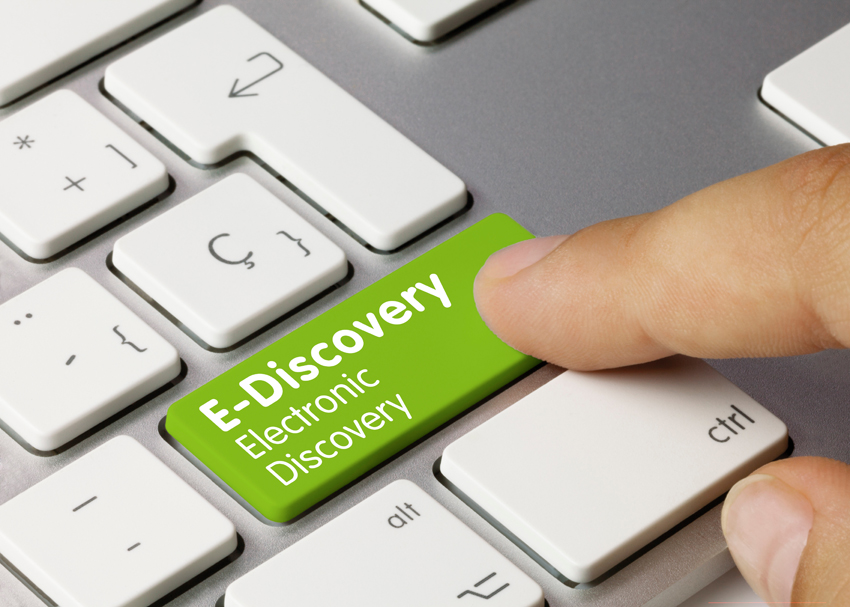Cyber Security: Making a match with an eDiscovery vendor
Cyber Security: Making a match with an eDiscovery vendor
By Carl Mazzanti
In today’s data-driven world, litigation often hinges on electronically stored information. Choosing the right eDiscovery vendor is vital, because it can affect how well legal matters go and how much they cost. An experienced IT support services provider can help to match the best eDiscovery vendor to a law firm’s needs.
Before beginning the selection process, however, evaluate what your organization’s eDiscovery needs are. Consider the volume of data, the types of cases you handle, and the in-house capabilities you already have. Once you have a handle on your data and business demands, asking the following questions will help you better vet prospective eDiscovery vendors:
1. What is your experience with cases like ours?
Ask prospective vendors about their specific experience in your specialty areas. Do they have a proven track record of managing cases of your size and complexity? Consider the different types of data, how complicated the legal case is, and the locations where you do business. Request specific examples.
You will also want to get a sense of the vendor’s technical and legal prowess. Determine if their employees are certified in the tools they use and assess their level of legal understanding. Are there legal professionals on the vendor’s staff?
2. Will vendors value data security and compliance?
Ensure that the vendor has stringent security measures in place to protect sensitive information from unauthorized access, since a data breach can prove catastrophic.. Also inquire about their compliance with regulations such as HIPAA or GDPR, if applicable.
Be sure to request detailed audit logs and verify that the vendor will properly keep track of all data collected. Does the vendor have sufficient controls to avoid spoliation of evidence?
3. What is a vendor’sprocess for data collection and management?
eDiscovery technology can drastically affect the time, cost, and risks involved. Inquire about the vendor’s methodologies for data collection, ensuring they are defensible and efficient. Additionally, discuss how they handle data processing, review, and production.
Verify that vendors are capable of handling data from various sources, including documents, emails, databases, social media, and cloud storage. Use advanced search, data processing, and analytics tools to find providers. These tools will help you sift through data quickly and locate information you need.
Learn about the vendor’s technology infrastructure: Do they use cloud-based solutions that offer scalability and security? Do they facilitate early-case assessment powered by AI, predictive coding, and smart filtering?
4. What is the pricing structure?
eDiscovery can be one of the more costly aspects of litigation. Avoid surprises by requesting a clear breakdown of fees, both the base price and tasks that would incur additional charges. Consider that vendors may use a variety of pricing models.
For instance, the seller could charge different fees for various tasks. These tasks may include collecting data, analyzing it, hosting it for review, and producing it. They may also charge for such specialized tasks as optical character recognition. Choose a vendor with a pricing model that suits your company’s needs, while ensuring predictability and transparency.
5. Does the vendor offer support and training for your in-house team?
Clear and consistent communication provides the foundation for a successful eDiscovery process. Make sure you know who you would contact if you have questions. Find out how often you will be provided with updates on a case. Inquire how long it takes the vendor to process and produce data.
You should also ask for and follow up on references. You can request a trial or demo of the vendor’s services to test out the platform’s features and see how easy they are to use.
6. Are avendor’s services scalable and flexible?
Your eDiscovery needs may vary over time, so it is crucial to choose a vendor who can scale services to meet your changing requirements. The vendor should provide customizable solutions to meet your needs, whether you have a small or large case.
7. What support and customer services does the vendor offer?
Reliable customer support is essential for a smooth eDiscovery process. What are the vendor’s support structure, response times, and availability? The vendor should provide comprehensive training for your team and ongoing support to address issues as they arise. Having a dedicated account manager is important, too, as it will help ensure that your needs are always taken care of.
Additionally, consider conducting a pilot project with a shortlisted vendor to assess their performance in a real-world scenario. This will provide insights into their capabilities and how well they align with your requirements.
Selecting the correct eDiscovery vendor is crucial to a firm’s success. To find the right one, work with your outside IT advisor to scrutinize the vendor’s expertise, technology, security, scalability, cost, and customer support. This will help you choose a vendor that meets your needs, and help you with the complexities of the eDiscovery process.

Carl Mazzanti is president of eMazzanti Technologies, a cyber security and IT support organization based in Hoboken, N.J. The company can be reached at [email protected].
Share this story, choose a platform
Brought to you by BridgeTower Media
Free Weekly Newsletter
Recommended content
Public Relations: Why engaging a PR professional is essential for attorneys
Public Relations: Why engaging a PR professional is essential for attorneys By Ellen Keiley Before engaging a public relations professional [...]
For lawyers looking to make it rain: Discipline eats motivation for breakfast
The motivation to achieve worthwhile goals comes and goes; it’s having the discipline to start and then keep up with [...]
7 strategies to maximize your AI-powered search market share
Here are tips for “future-proofing” a prominent position for your firm by saturating the search engine results pages (SERPs) of [...]
After 35 years, now what’s next for law firms?
The authors look back at how well one of them did in 1989 when she predicted coming trends in the [...]

